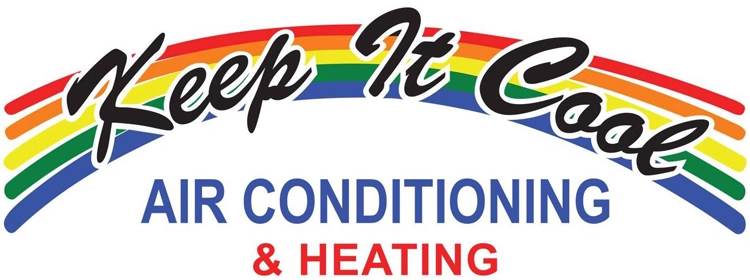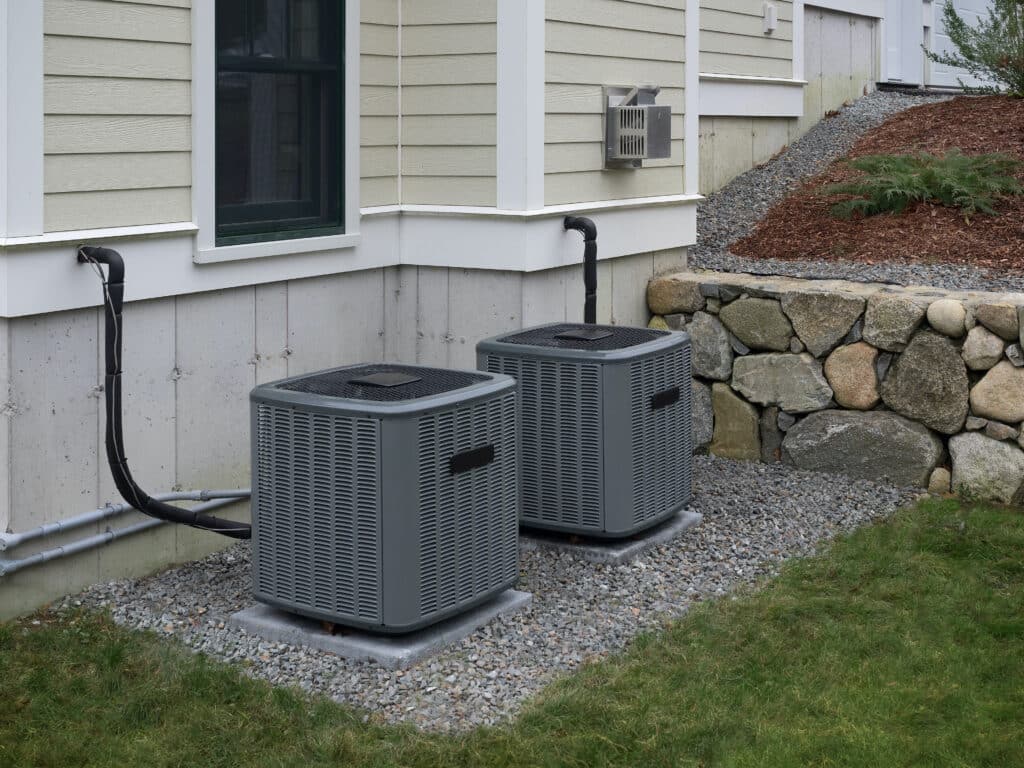Common Types of Air Conditioners
There are a few different varieties of air conditioners on the Corpus Christi market. While HVAC technicians can work with most types, knowing which one you have will simplify your company search.
- Ductless mini-split: Ductless mini-splits have an exterior unit and one or more indoor units, with no ductwork required. They offer individual room temperature control, higher energy efficiency, and flexible installation options.
- Split ACs: Split ACs have two main elements: one inside and one outside. They offer silent operation, enhanced efficiency, ductwork options, and more cooling capability versus mini-splits.
- Window ACs: Window air conditioners are a popular choice for Corpus Christi condos, townhomes, and apartments. These compact, affordable units are designed for cooling single rooms and small spaces, and they fit snugly in a window frame or dedicated wall slot. Many window-mounted AC users deploy their units without professional assistance, though technicians can still help with maintenance and repairs.
- Portable air conditioners: As the name implies, portable ACs don't require permanent installation or ductwork. Instead, they remove hot air through an exhaust hose connected to a window or nearby vent. They're popular for apartments, condos, or individual rooms.
- Central AC: These are the most common home air conditioners, offering precise, consistent temperature control. They feature a central unit that cools and purifies outside air and sends it through ducts to different rooms in your home.
How to Choose Your Corpus Christi AC Repair Service
With the intense Corpus Christi heat, AC issues are urgent to fix. However, to get the best possible outcome, it's critical to thoroughly research different HVAC companies first. We recommend adhering to these steps as you prepare.
Confirm the Company Is Properly Licensed and Insured
Texas' Department of Licensing & Regulation issues Air Conditioning and Refrigeration Contractor licenses to both companies and technicians. Applicants for a contractor license must meet apprenticeship requirements unless they hold a technician license, trade school diploma, mechanical engineering degree, or relevant military service experience.
You should also verify a company has sufficient liability coverage, even if your state doesn't require it. Choosing an insured company will protect you if accidents happen during work.
Read Customer Reviews
Check customer reviews on the Better Business Bureau (BBB) website for each company you're interested in. The BBB accredits businesses that respond to complaints professionally and honor their warranties.
It's common for even the best AC repair companies to have both positive and negative reviews. Read each one carefully, and avoid a provider if most reviewers had subpar experiences.
Compare Estimates
Obtain at least three detailed, written estimates from different companies for the best value. A good estimate should consider additional fees such as permitting costs. You should also ask about the emergency repair process, manufacturer warranties, and installer guarantees.
Ready to Get a Quote on Your Hvac Project?
Please enter a valid 5-digit zip code!
Frequently Asked Questions About AC Repair in Corpus Christi
What's the cost of an AC repair job in Corpus Christi?
See the average costs for common AC repairs below.
| Common Repair | Average Cost |
|---|---|
| Clogged air filter | $59–$159 |
| Electrical circuits | $200–$250 |
| Drainage problems | $100–$150 |
| Thermostat | $79–$198 |
| Refrigerant leak | $400–$1500 |
| Frozen condenser coils | $1,189–$3,568 |
| Fan or air blower issues | $150–$200 |
| Compressor replacement | $600–$1,507 |
What month is best for getting an air conditioner replaced?
Why should I hire an HVAC professional? Couldn't I repair my air conditioner myself?
How many years until I should replace my AC unit?
What industry certifications should I look for when researching Corpus Christi AC repair companies?
To share feedback or ask a question about this article, send a note to our Reviews Team at reviewsteam@thisoldhousereviews.com.
















